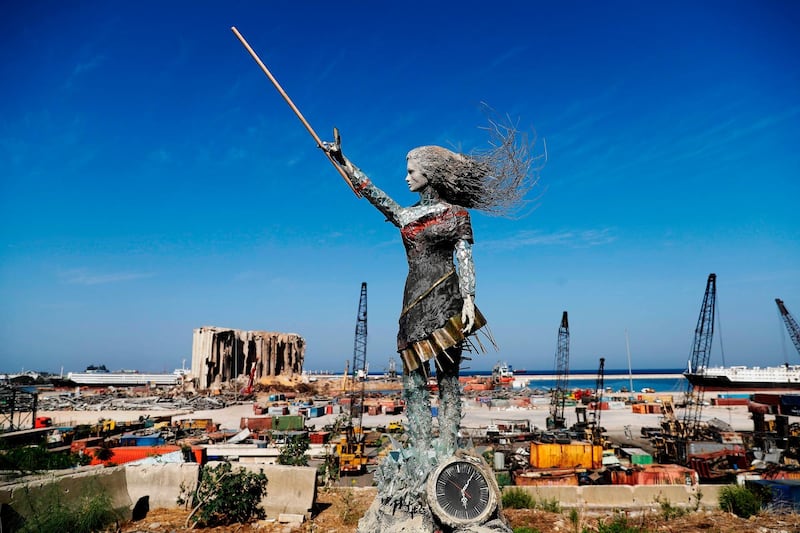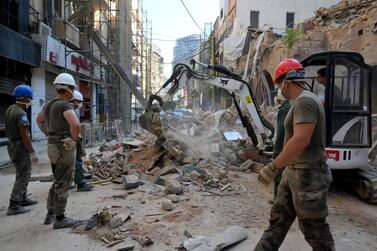Consumer confidence in Lebanon deteriorated in the first half of 2020 in the wake of political uncertainty and the deterioration of the country's economy in tandem with the outbreak of the coronavirus pandemic.
The latest Consumer Confidence Index issued by Lebanese lender Byblos Bank/AUB shows the index declined 70.4 per cent in the first half of this year from the semi-annual peak registered in the first half of 2009.
The index posted a monthly average of 38.7 points in the first quarter of 2020, declining 19 per cent from the previous three months. In the second quarter, the index reached 19 points and dropped 51 per cent from the previous three months.
The Byblos Bank/AUB Consumer Confidence Index is a measure of the sentiment and expectations of Lebanese consumers towards the economy and their own financial situation.
“The deepening of the socio-economic crisis throughout the first half of 2020, along with policy inaction and the outbreak of coronavirus in the country, led to the decline in consumer sentiment,” Byblos Bank/AUB, said in a report on Thursday.
Only 0.3 per cent of Lebanese surveyed in the second quarter expect their financial conditions to improve within six months, while just 0.7 per cent of respondents believed Lebanon's economy would improve over the same forecast period.
Lebanon is facing its worst economic crisis since its independence in 1943 after defaulting on about $31 billion of eurobonds and its currency losing more than 80 per cent of its value against the dollar in the black market. Talks with the IMF for a $10bn aid package have stalled as a result of political differences among the country's political class.
An explosion at the Port of Beirut in August, which killed more than 200 people and devastated large parts of the capital, has further compounded Lebanon’s economic woes. Lebanon's economy is expected to contract 25 per cent this year after unemployment and inflation increased, according to the International Monetary Fund.
Reflecting the challenging situation, the BLOM Lebanon PMI index, a measure of the strength of the country's private sector, edged up slightly to 42.1 last month from 40.1 in August. A reading above 50 denotes economic expansion and one below 50 represents a contraction.
On Thursday, former prime minister Saad Hariri was designated by Lebanon's president Michel Aoun to form a government to tackle the country's economic woes.
This is the fourth time Mr Hariri, 50, has been named to the post. His father Rafik Hariri served as prime minister five times, and is credited with rebuilding the country after the end of a 15-year civil war in 1990.








